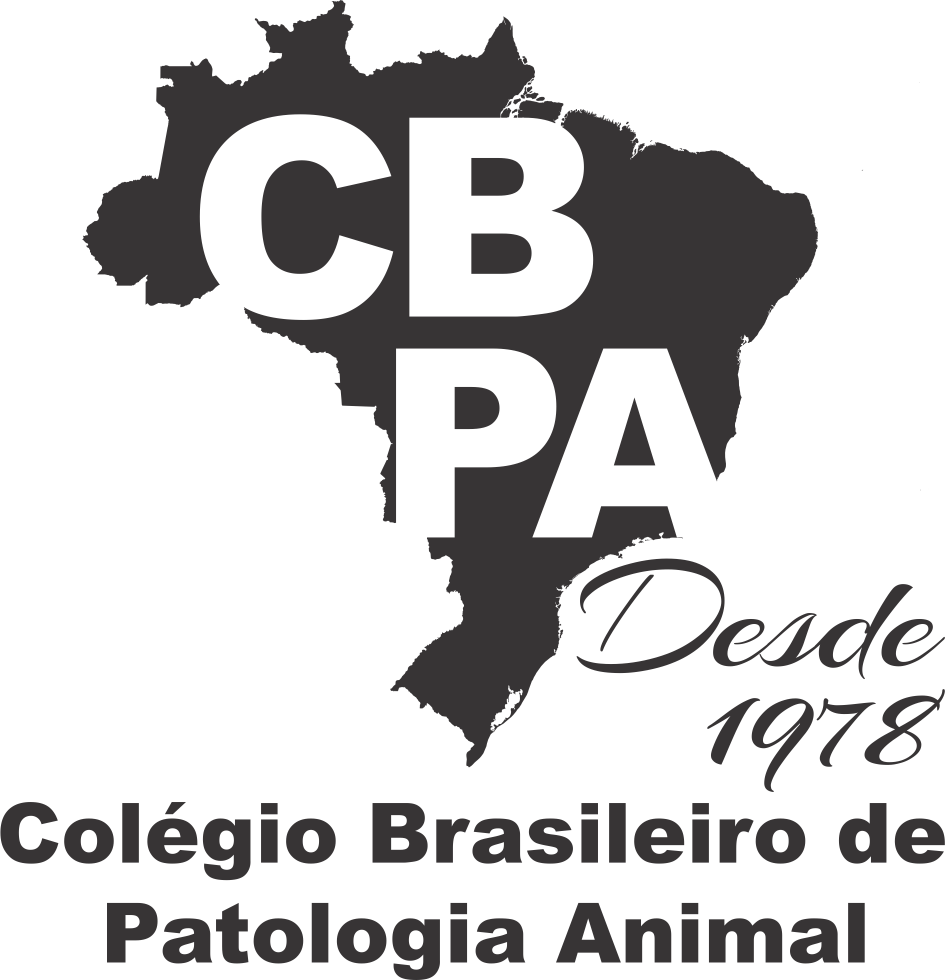Resultado da pesquisa (2)
Termo utilizado na pesquisa F42
#1 - Occurrence of F42 colonization factor in Escherichia coli strains isolated from piglets with diarrhea, p.31-33
Abstract in English:
Penatti M.P.A., Silva A.S., Valadares G.F. & Leite D.S. 2005. Occurrence of F42 colonization factor in Escherichia coli strains isolated from piglets with diarrhea. Pesquisa Veterinária Brasileira 25(1):31-33. Depto Microbiologia e Imunologia, Instituto de Biologia, Unicamp, Campinas, SP 13081-970, Brazil. E-mail: domingos@unicamp.br
The objective of this study was to determine the presence of the colonization factor F42 in 168 strains of Escherichia coli isolated from diarrheic stools of newborn piglets. The presence of F42 in 12 (7.1%) strains was detected with the agglutination test. Through the Polymerase Chain Reaction (PCR) of F42 positive strains, gene encoding enterotoxins (ST-I, ST-II, LT-I and LT-II) were detected. The finding of ST-I/ST-II genes in 50% of the strains, ST-I (16%) and ST-II (25%) indicates a strong association of FC F42 with heat-stable enterotoxins (91%). In contrast, the thermolabile enterotoxin (LT-I and LT-II) genes were not detected. Serogroups of F42 positive strains were determined, serogroup O8 being the most prevalent (41,7%). Other serogroups, as there are O9, O11, O18, O32, O35, O98 and O101, were also identified. Thus, FC F42 was confirmed as an additional factor of virulence in the pathogenesis of porcine colibacillosis.
Abstract in Portuguese:
Penatti M.P.A., Silva A.S., Valadares G.F. & Leite D.S. 2005. Occurrence of F42 colonization factor in Escherichia coli strains isolated from piglets with diarrhea. Pesquisa Veterinária Brasileira 25(1):31-33. Depto Microbiologia e Imunologia, Instituto de Biologia, Unicamp, Campinas, SP 13081-970, Brazil. E-mail: domingos@unicamp.br
The objective of this study was to determine the presence of the colonization factor F42 in 168 strains of Escherichia coli isolated from diarrheic stools of newborn piglets. The presence of F42 in 12 (7.1%) strains was detected with the agglutination test. Through the Polymerase Chain Reaction (PCR) of F42 positive strains, gene encoding enterotoxins (ST-I, ST-II, LT-I and LT-II) were detected. The finding of ST-I/ST-II genes in 50% of the strains, ST-I (16%) and ST-II (25%) indicates a strong association of FC F42 with heat-stable enterotoxins (91%). In contrast, the thermolabile enterotoxin (LT-I and LT-II) genes were not detected. Serogroups of F42 positive strains were determined, serogroup O8 being the most prevalent (41,7%). Other serogroups, as there are O9, O11, O18, O32, O35, O98 and O101, were also identified. Thus, FC F42 was confirmed as an additional factor of virulence in the pathogenesis of porcine colibacillosis.
#2 - Experimental reproduction of colibacillosis in piglets
Abstract in English:
Experimental neonatal colibacillosis, in newbom piglets was attempted using 4 groups of enterotoxigenic Escherichia coli (ETEC) strains, as follows: 1) Two strains from serogroup 0149:K91, both producing thermolabile enterotoxin (LT) and K88 colonization factor; 2) Two strains from serogroup 0101:K30, producing thermostable enterotoxin (STa) and K99 colonization factor; 3) One strain from serogroup 0157:K?, producing thermostable enterotoxin of the STb type and K88 antigen, and 4) One strain from serogroup 08:K?, producing STa enterotoxin anda new colonization factor, named F42. All fourteen piglets inoculated orally with these strains of ETEC developed clinical disease and died up to 42 hours after inoculation, being possible to visualize, by indirect fluorescent antibody technique, in all of them, that colonization of small intestine by the inoculated ETEC had occurred. The production of STa "in vivo", into the gut, by strains from group 2 and 4 was an important factor to prove that experimental colibacillosis did occur. In fact, coprocultures either from the diarrheic stools or from the gut contents revealed a high rate of LT+-K88+ and STa+ -K99+ colonies recovery. Though some quantitative differences among the examined materiais have been observed, the recovery of STa + -F42 + colonies was lower than in the former groups of ETEC strains. However clinical symptoms, production of STa "in vivo" and colonization of the gut of inoculated piglets proved that F42 antigen is undoubtedly a new colonization factor among ETEC involved in porcine colibacillosis.
Abstract in Portuguese:
Foi tentada a reprodução experimental da colibacilose suína neonatal, em leitões recém-nascidos, usando-se para tal 4 grupos de amostras de Escherichia coli enterotoxigênicas (ETEC), a saber: 1) Duas amostras do sorogrupo 0149:K81, produtoras da enterotoxina termolábil (L T) e do fator de colonização K88; 2) Duas amostras do sorogrupo 0101:K30, produtoras da enterotoxina termoestável (STa) e do fator de colonização K99; 3) Uma amostra do sorogrupo 0157:K?, produtora da enterotoxina termoestável do tipo STb e do fator de colonização K88, e 4) Uma amostra do sorogrupo 08:K?, produtora da enterotoxina termoestável (STa) e de um novo fator de colonização, denominado F42. Todos os 14 leitões inoculados por via oral com estas amostras de ETEC desenvolveram doença clínica com morte até 42 horas após a inoculação, tendo sido possível detectar em todos eles a colonização do intestino delgado pelas amostras de ETEC inoculadas, através da técnica de imunofluorescência indireta. A produção de STa "in vivo", por amostras dos grupos 2 e 4 foi um fator importante na comprovação de que a reprodução experimental da doença por estas amostras realmente ocorreu. De fato, a coprocultura, quer das fezes diarréicas, quer do conteúdo intestinal dos animais, revelou um alto índice de recuperação de colonias LT+ -K88+ e STa+ -K99+. Embora tenham ocorrido entre os diversos materiais examinados algumas diferenças quantitativas, a recuperação de colônias STa=+ -F42+ foi menor do que nos casos anteriores, porém os achados referentes a doença clínica, produção de STa "in vivo" e colonização do intestino delgado dos leitões inoculados, comprovaram que o antígeno F42 é, sem dúvida, um novo fator de colonização em amostras de ETEC envolvidas na colibacilose suína.








